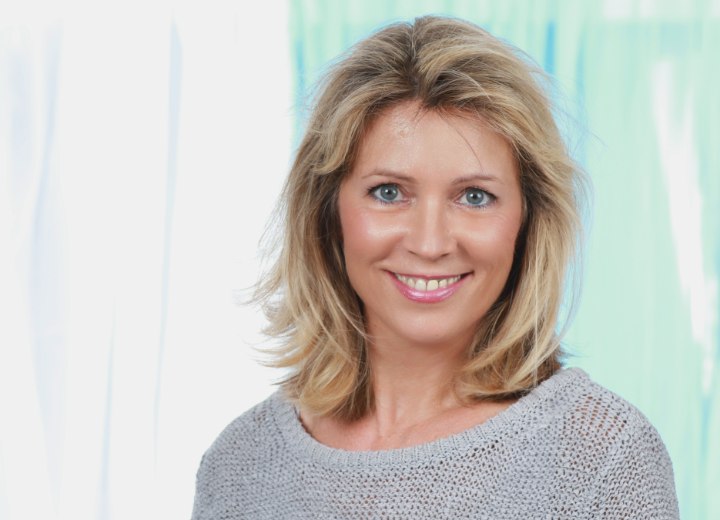Menopausal Changes (2)

Many women also note a thinning of pubic and underarm hair after menopause. Female baldness, a rare problem, may begin around age forty. See a dermatologist if hair loss persists or seems excessive compared to older female family members.
Changes in hair texture and thickness can be minimized by avoiding over-styling. Good nutrition can also slow the brittleness of hair that comes with normal aging.
One of the reasons that hair loss can occur in women going through menopause is that the thyroid may be functioning at a low level, often referred to as hypothyroidism. The thyroid is a gland that all of us have, and it controls the functioning of the various glands and cells in our bodies. This means that the growth, metabolism, and repair of those cells and glands are affected.
Naturally, if a woman is experiencing hypothyroidism during menopause, the rate at which the hair grows is affected. For this reason, if you experience what seems to be greater hair loss during menopause than other female family members have undergone, you should consult your doctor to have your thyroid levels checked.
Many women experience hair loss during menopause as a result of fluctuations in the major hormones of the body. Hormones also play a vital role in the proper growth of hair and other types of cells in the body. Not only can hormonal fluctuations lead to hair loss, but the texture and condition of the hair are more likely to be affected by these changes. When there are many fluctuations in hormone levels, hair loss may become evident. For many women, hair thinning may be an issue that occurs. Doctors can prescribe medication treatments for this issue.

The body changes in many different ways when a woman experiences menopause. With these various changes, the scalp and the basic dermatology of the skin may become slightly altered. There are not only physical changes to be dealt with, but these physical changes can be stressful.
Many women experience large amounts of stress when they go through menopause. This can also result in hair thinning and hair loss, as stress has long been shown to affect the growth pattern of the hair. In addition to the stress experienced as a result of menopause in women, other situations may increase stress. It is therefore really important to have a good support system in place.
©Hairfinder.com
See also:
Hair and the aging woman
Changes in hair when we age